What do Blaise Pascal, Thomas Edison, and Albert Einstein all have in common?
No, it’s not just that they changed the world with their brilliant minds—they all started learning at home.
Long before there were labs, formal classrooms, or standardized tests, the world’s most curious minds were nurtured by patient parents, endless questions, and a love of discovery. In other words, the perfect recipe for homeschooling.
Great Scientists Who Were Homeschooled
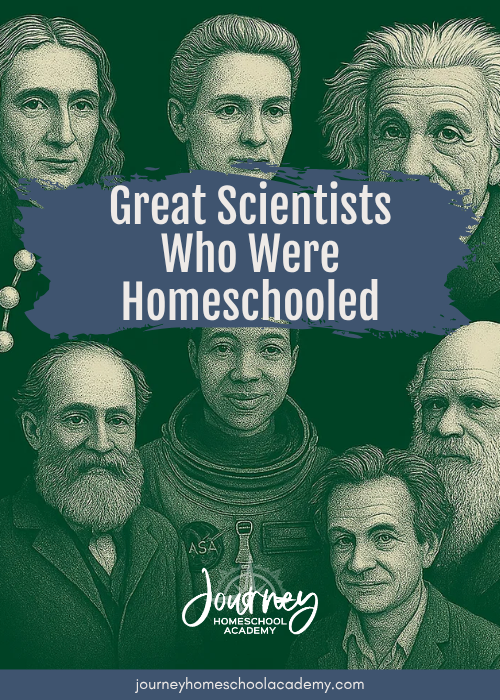
Where Curiosity Begins — at Home
As homeschool parents, we often wonder:
Can I really prepare my child for a future in science?
The answer—resounding and proven through history—is yes. Some of the greatest scientific breakthroughs in history came from individuals whose education began right where your kids are learning now: at the kitchen table, surrounded by wonder.
Why Homeschooling and Scientific Genius Often Go Hand in Hand
Homeschooling naturally fosters the habits that make great scientists—curiosity, independence, persistence, and creativity.
Traditional education often rewards memorization. But science—the real kind, where discovery happens—rewards curiosity. Homeschooled students are free to ask big questions, take rabbit trails, and explore how God’s creation works in ways a rigid classroom schedule can’t always allow.
Even more importantly, homeschooling allows parents to weave faith and learning together seamlessly. Science isn’t just a list of facts; it’s an invitation to explore the handiwork of a Creator who designed galaxies, gravity, and genetics with purpose.
7 Great Scientists Who Were Homeschooled
Let’s take a closer look at some of the world’s most influential homeschooled scientists—and what their stories can teach us.
1. Blaise Pascal (1623–1662) – Mathematician, Physicist, and Theologian
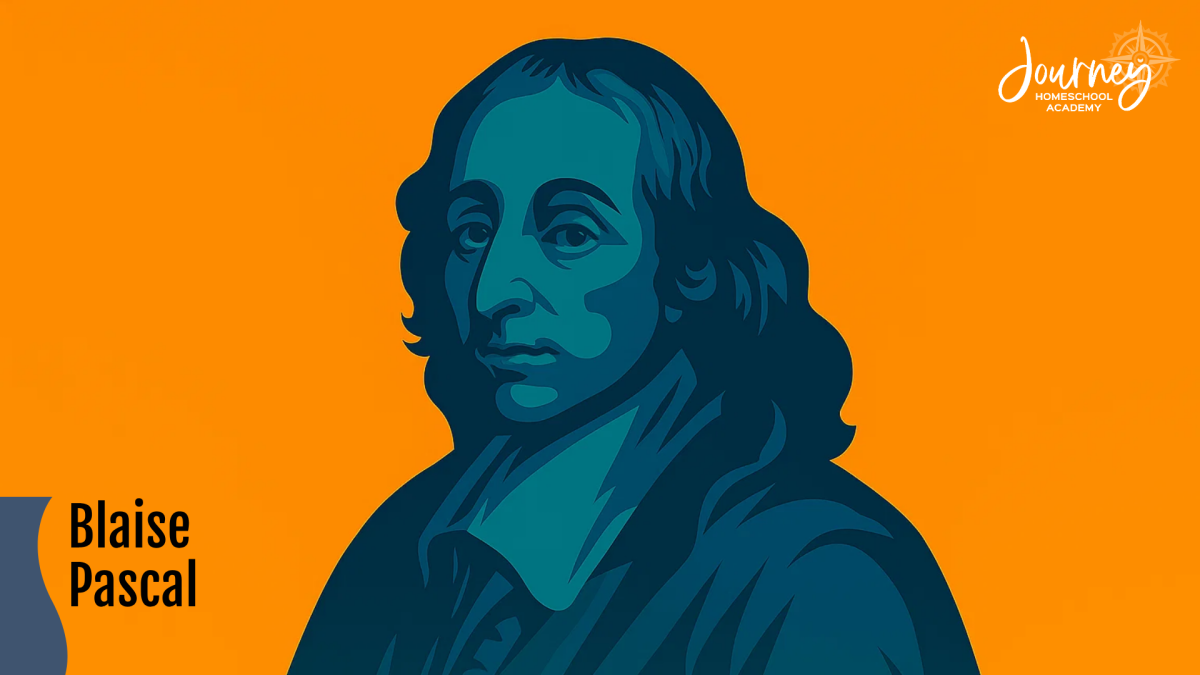
Pascal’s father chose to educate him at home, recognizing his extraordinary intellect. By age 16, Pascal had written a groundbreaking paper on geometry. Later, he invented one of the world’s first mechanical calculators and helped establish probability theory.
Yet despite his brilliance, Pascal’s heart turned toward faith. His famous Pensées explored how reason and belief coexist, writing,
The heart has its reasons which reason knows nothing of.
Pascal reminds us that a scientific mind and a faithful heart are not opposites—they’re allies.
2. Michael Faraday (1791–1867) – Pioneer of Electromagnetism
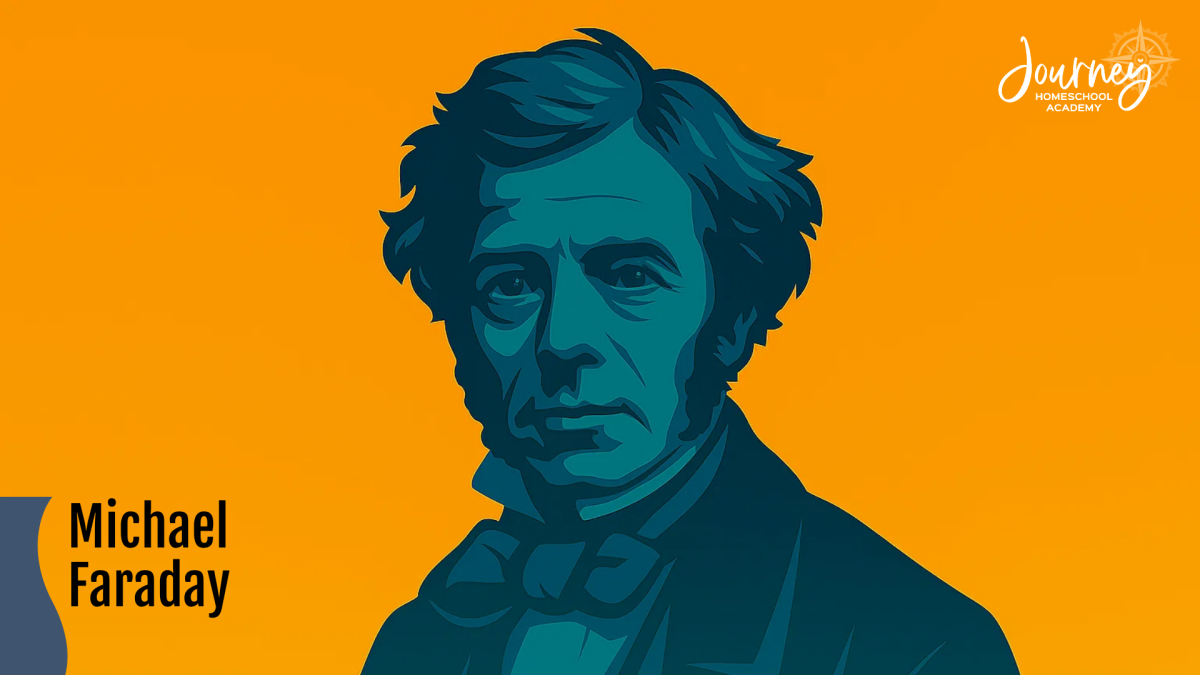
Faraday had little formal schooling; he was largely self-taught through books and experiments. His discoveries in electricity and magnetism became the foundation for modern physics—and for the devices we use every day.
A humble Christian, he believed every discovery revealed more of the Creator’s order and beauty.
At Journey Homeschool Academy, that’s the same heart behind our courses like Discover Physics—helping students see God’s fingerprints in every formula and law.
3. Charles Darwin (1809–1882) – Naturalist and Biologist
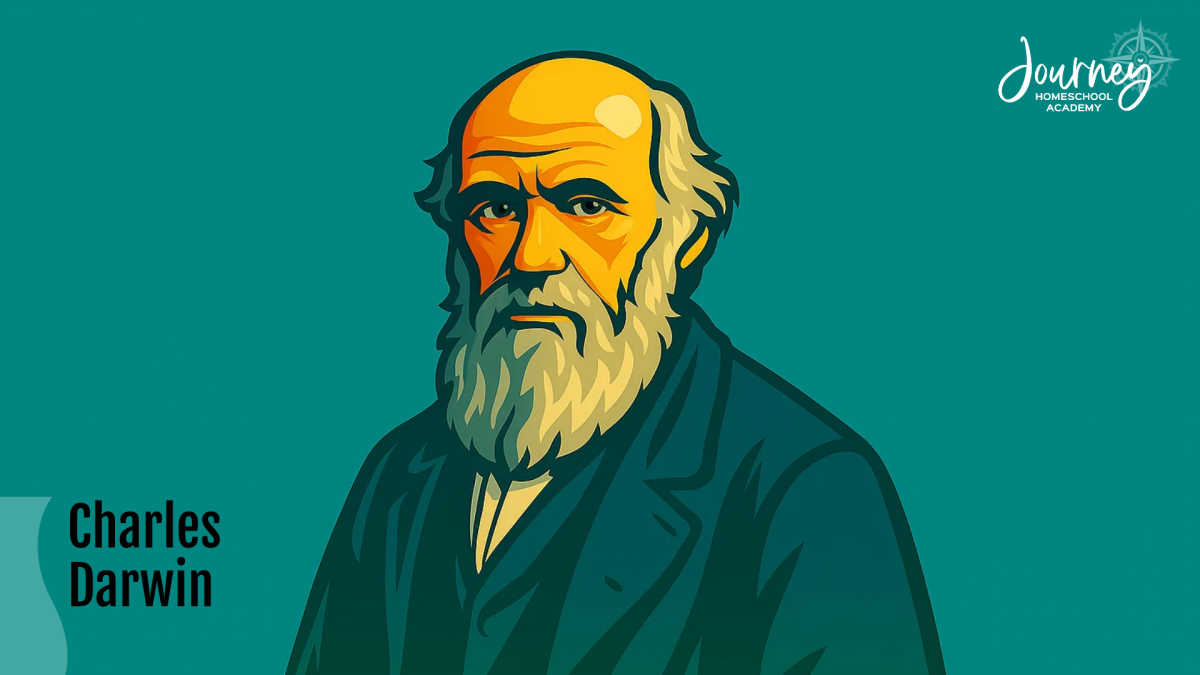
While Darwin’s conclusions continue to spark debate in Christian circles, his early education shows the value of self-directed learning. Tutored at home for several years, Darwin developed a passion for observing nature—especially beetles and plants. His curiosity for creation, even when controversial, was born from unstructured time outdoors and inquisitive exploration.
At JHA, we encourage the same love of observation through our Experience Biology courses—inviting students to explore God’s creation with wonder and critical thinking.
4. Florence Nightingale (1820–1910) – Founder of Modern Nursing
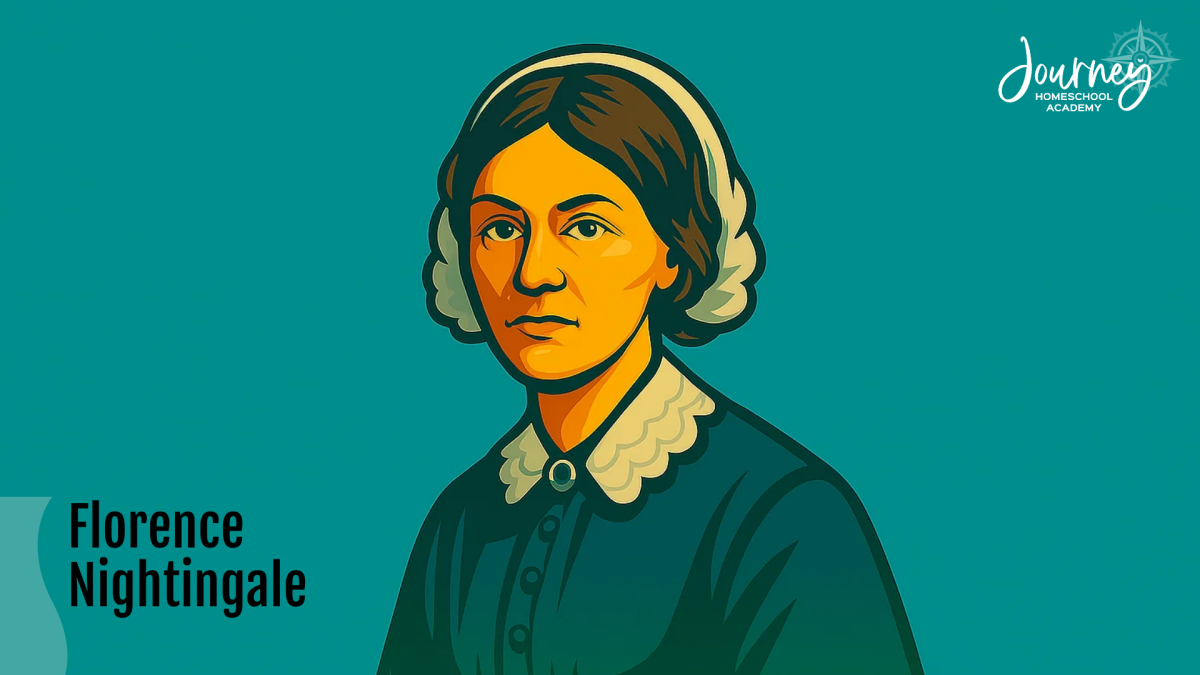
Homeschooled by her father, Nightingale excelled in mathematics, philosophy, and languages. Her sharp mind and deep compassion transformed healthcare during the Crimean War, where she applied statistical analysis to save countless lives.
More than a nurse, she saw her work as a divine calling. Her Christian faith fueled her belief that caring for the sick was both a scientific and sacred duty.
5. Thomas Edison (1847–1931) – Inventor and Innovator
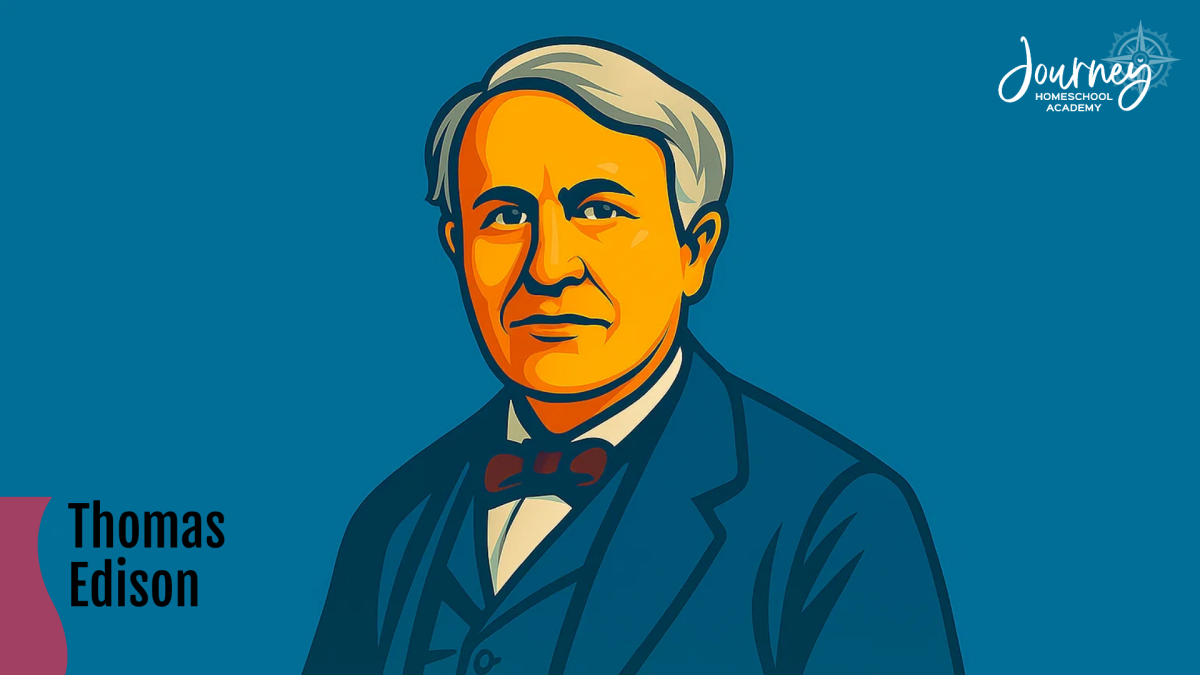
Edison’s teachers labeled him “difficult,” and he was expelled from school at age 12. His mother—believing in his potential—taught him at home. Under her guidance, he blossomed into one of the world’s greatest inventors, holding over 1,000 patents.
Edison famously said,
Genius is one percent inspiration and ninety-nine percent perspiration.
That’s homeschooling in a nutshell, isn’t it? Faithful consistency, day after day, producing a lifetime of creativity and resilience.
6. Booker T. Washington (1856–1915) – Educator and Author
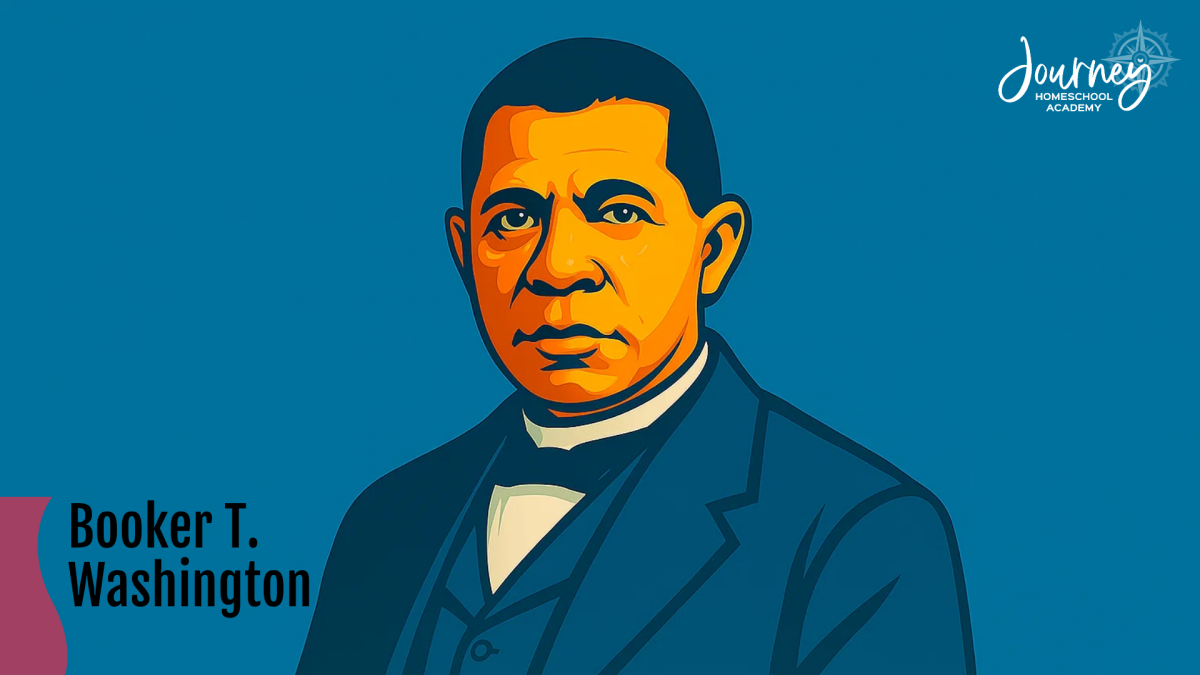
Though not a scientist in the laboratory sense, Booker T. Washington’s pursuit of education shaped generations. Born into slavery, he taught himself to read and later founded the Tuskegee Institute, emphasizing agricultural and industrial sciences for African Americans.
His story is a testament to perseverance—a reminder that a love for learning can flourish in any circumstance, even when resources are scarce.
7. Albert Einstein (1879–1955) – Theoretical Physicist
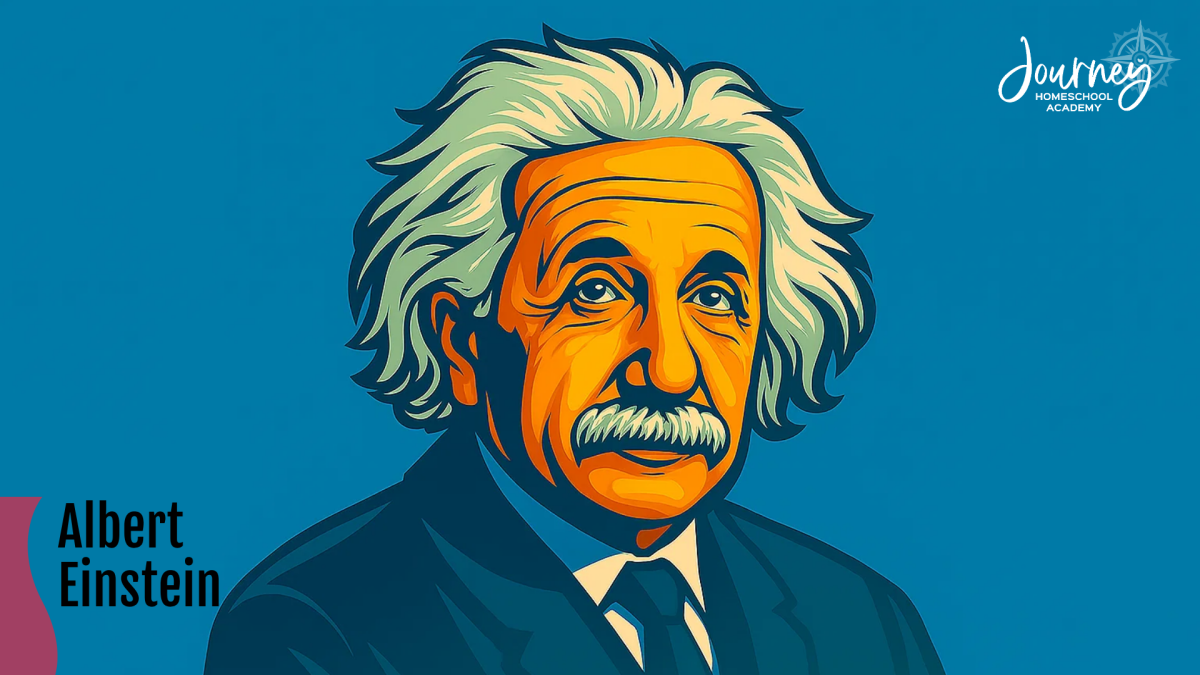
As a child, Einstein struggled in rigid schools. His parents eventually homeschooled him with help from tutors, giving him the freedom to explore math and philosophy at his own pace. That curiosity led him to reshape our understanding of time, space, and energy.
Einstein once said,
Imagination is more important than knowledge.
Homeschooling gives children both—the imagination to dream big and the time to pursue their questions deeply.
Courses like Experience Astronomy PLUS do just that—combining wonder, structure, and faith to help students marvel at the heavens God created.
What These Homeschooled Scientists Teach Us
Looking at these stories, common threads emerge:
- Freedom to explore their God-given curiosity
- Parents who guided rather than lectured
- Faith that informed their work, whether directly or through values like humility and perseverance
- Hands-on learning that made knowledge come alive
Parents, you don’t have to be a scientist to raise one.
You simply need to nurture your child’s curiosity, encourage their questions, and connect them with tools that spark their imagination.
That’s exactly what we’ve designed at Journey Homeschool Academy: courses that make science accessible, joyful, and faith-filled—so learning keeps going even when you can’t be the expert.
Faith and Science Belong Together
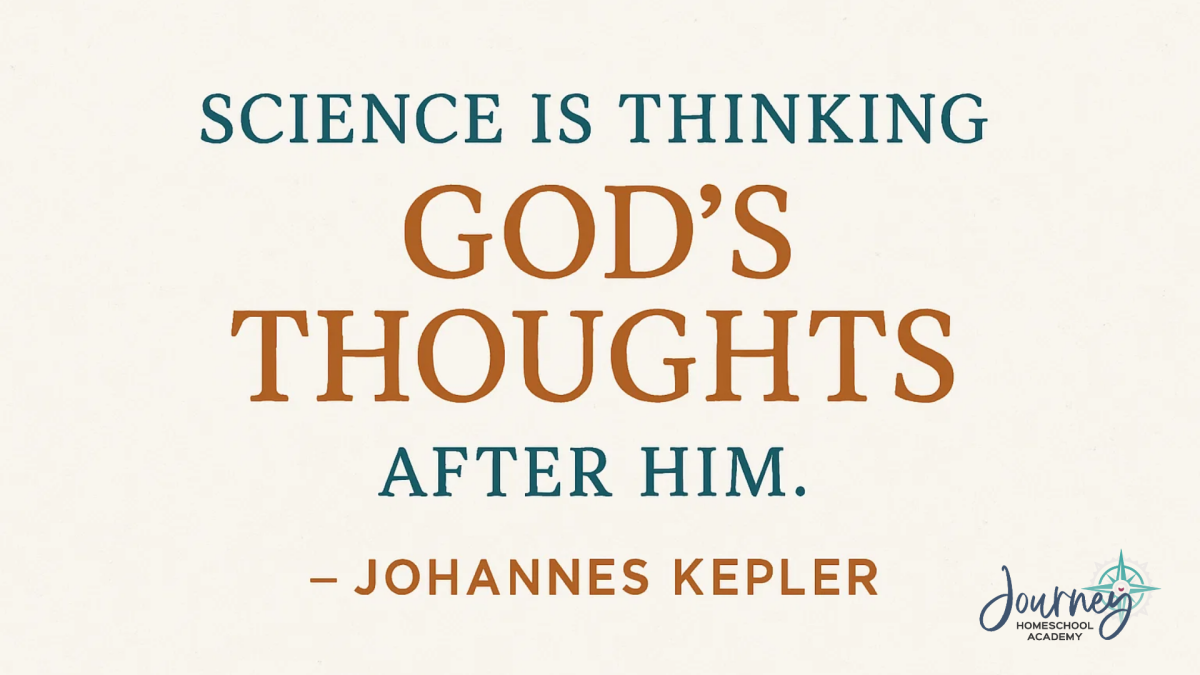
For centuries, people have tried to separate faith and science. But as these homeschooled scientists prove, they belong together beautifully.
As Christian homeschoolers, we know that studying the natural world isn’t a threat to faith—it’s an act of worship. Every time your child looks through a microscope or studies the stars, they’re glimpsing the artistry of the Creator.
Ready to Inspire the Next Generation of Scientists?
If history has taught us anything, it’s that world-changing scientists can come from humble beginnings—and even from the kitchen table of a homeschooling family.
So, as you lead your child through another year of experiments, reading, and observation, take heart. You may be raising the next Pascal, Nightingale, or Einstein.
👉 Explore faith-filled, engaging science courses designed for homeschool families on our Preview Our Courses page.
Because at Journey Homeschool Academy, we believe real learning is applied learning—and that every discovery can point your child back to the Creator who made it all.

